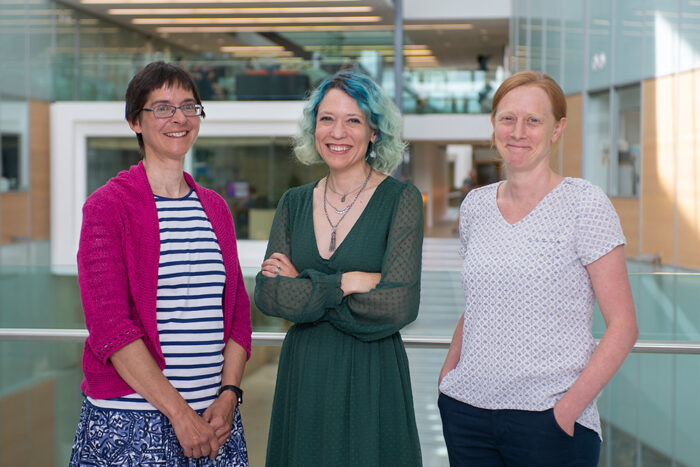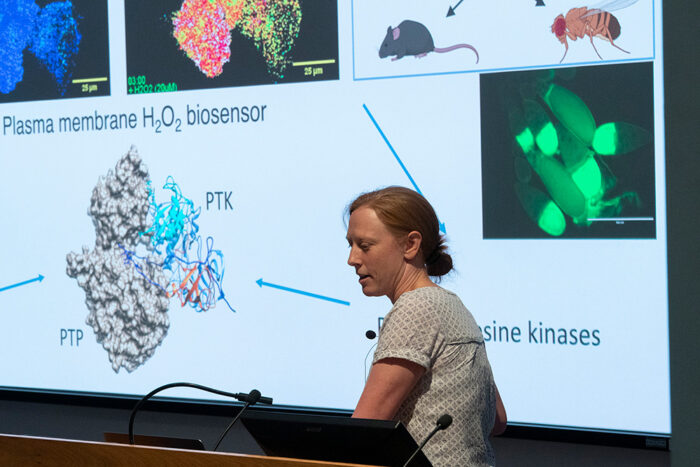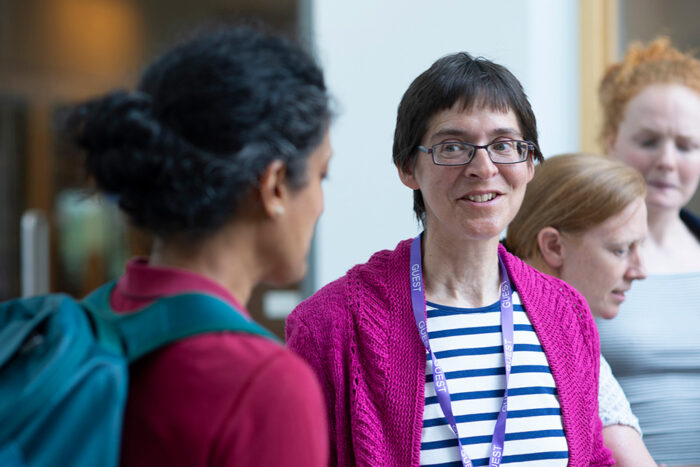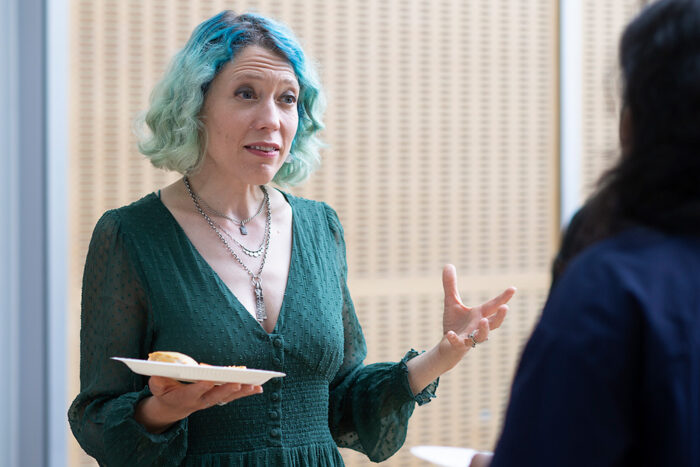
In June this year, LMB staff, students and visitors from across Cambridge gathered in the Max Perutz Theatre, and also online, to hear from three inspirational speakers, Anne Cooke, Stephanie Pilkington and Hayley Sharpe, at this year’s ‘What Next for Your Career’ event. All three have gone on to do a variety of rewarding roles using their scientific knowledge, skills and expertise, the common thread being they have all spent time at the LMB.
The speakers all talked about the significance of good work-life balance, finding the right people to mentor and support you along different paths, whilst also bearing in mind that the science community is small, so building networks and staying in touch with old colleagues can be a powerful tool for future opportunities.

Hayley Sharpe was a PhD student in Sean Munro’s lab from 2006-2010. She was a postdoc in the same lab for a short time before moving to Fred de Sauvage’s lab at Genentech. In 2016, Hayley set up her own lab at the Cambridge Institute for Medical Research as a Wellcome Trust Sir Henry Dale fellow and in 2019, she joined the Babraham Institute as a tenure track Group Leader working to understand the functions of the protein tyrosine phosphatases. She was selected to join the EMBO Young Investigator Programme and was awarded a Lister Research Prize Fellowship. Hayley is now a tenured group leader at the Babraham Institute. Hayley’s advice was to get lots of experience in different places, learn and build confidence from your mistakes and keep your options open.

Stephanie Pilkington completed her PhD in 1991 in John Walker’s lab sequencing subunits of mitochondrial Complex, staying on as a postdoc before spending three years in the pharmaceutical industry. She then trained as a patent attorney at Potter Clarkson LLP. Her work has spanned a range of biotech and biomedical technologies, from early-stage to established products and litigation. She became the first female, first part-time Board member at Potter Clarkson LLP and also contributed to the policy work of the Chartered Institute of Patent Attorneys (CIPA) through its Life Sciences Committee. Stephanie is a Trustee Director of The Earlham Institute, bringing experience of knowledge exchange and commercialisation to the role. She explained how she enjoys the variety of projects that she works on in her current role which contrasts with focussing on one topic for a long time as a scientist. Stephanie’s advice was to learn from the best, be you and believe in yourself.

Anne Cooke completed her PhD in Leon Lagnado’s group looking at vesicle cycling in presynaptic nerve terminals. After a short postdoc, she joined the University of Bristol to set up ‘Bristol Neuroscience’, the first of the ‘city neuroscience’ schemes across the UK. Her career continued in research management or science administration including working for the Bristol Heart Institute and the British Anaesthetic and Respiratory Equipment Manufacturers’ Association and, for 7.5 years, as Chief Executive of the British Neuroscience Association. She has recently made a complete career change as Head of Learning and Development in an events company, with responsibility for creating a new apprenticeship scheme. Anne had lots of advice but emphasised the importance of talking to people about their career paths, follow what makes you happy and find confidence in the skills that you do have as a scientist and take those with you to which ever role you choose.
After the talks there was a networking opportunity during which attendees interacted with the speakers and each other to discover more about the various career paths that can follow a PhD in the life sciences.
Cambridge AWiSE is a regional network for women in science, technology, engineering, maths and medicine (STEMM) in both industry and academia, and also for women who wish to return to a STEMM career after a break. The organisation’s objective is to bring together women with common interests to act as a source of support, information, and inspiration. Cambridge AWiSE aims to help women stay in STEMM to make the most of their careers, and provides regular talks, workshops, networking opportunities, and information.